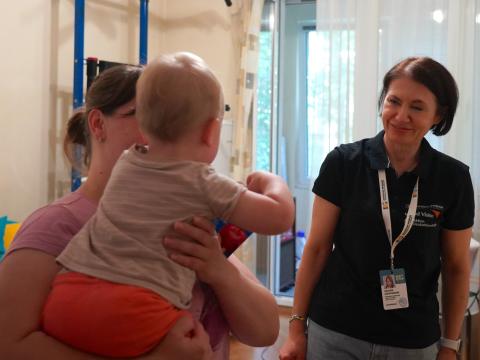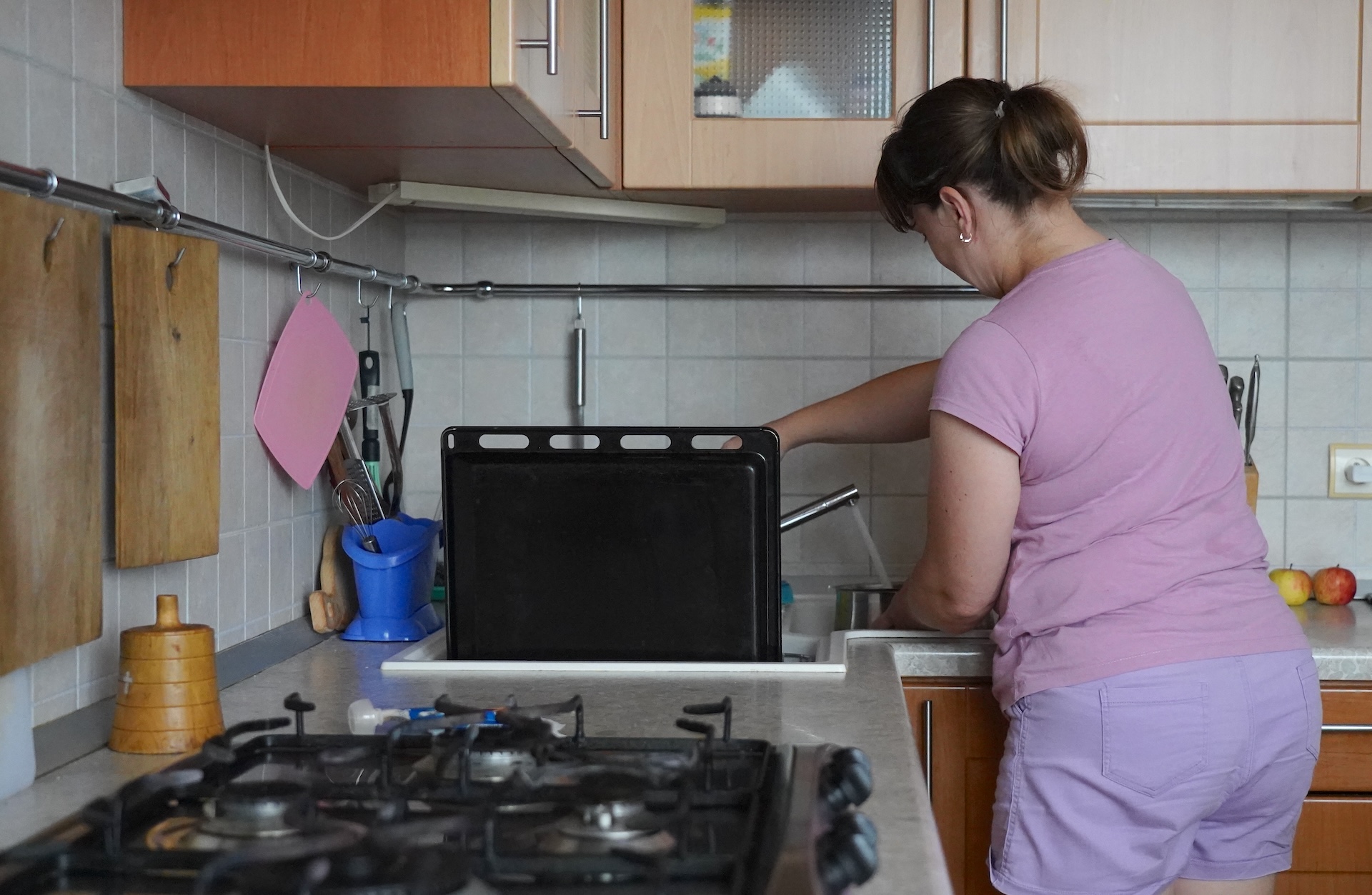Violence against women and domestic abuse: A reality in war-torn Ukraine

Oksana, a 35-year-old mother of two, did not flee her home in a town in Ukraine because of war. She did because of another threat – domestic abuse.
Oksana*, her five-year-old daughter Anna*, and baby boy Andrei* have settled in Lviv, in one of the halfway houses run by the Ukrainian Foundation for Public Health, World Vision’s local partner in Ukraine, and funded by Aktion Deutschland Hilft (ADH), where they are slowly rebuilding their lives.
The halfway house provides temporary shelter and residence-based services for women in critical need of support. “I lived with my husband and his parents for 14 years. I was married, and still am because I have not filed a divorce yet,” she goes on.
“The situation that brought me and my children here was domestic violence, fueled by my husband's excessive drinking over the last five years.” From the beginning Oksana did what many do trying to make it work. She was busy with her daughter, focusing on keeping the peace. But her husband’s behavior became increasingly erratic as he fell deeper into alcoholism.
"It all started two years ago when I was five months pregnant with Andrei," Oksana recalls, her eyes reflecting the fear of that moment. "I was terrified; it was clear he was no longer in control." Oksana fled in the middle of the night driving 100 kilometers from the city to her grandmother's house where they stayed for three months.
“He apologized and begged me to return, promising that he would change, that it would never happen again,” she explains. “Both our parents also convinced me to give him another chance. I went back, hoping things would improve. But it did not last long,” Oksana says.
The aggression escalated, not just towards Oksana but also towards their children. The last two months of living together were unbearable. When she finally decided to leave, the police had to be present because he wouldn’t let them go.
Such facilities provide invaluable assistance to women who have experienced domestic violence. Of course, I would prefer that more places like this exist, but with fewer experiences like mine.
It was incredibly hard for Oksana to leave after 14 years together, especially since they had waited ten years for the children. During that time, Oksana had two miscarriages. She first moved back to her grandmother’s house and stayed there for a while but realized the husband knew where to find her, and she was constantly afraid.
Additionally, there were no suitable living conditions for small children – no kindergarten, no running water, no heating. She started to search for options and finally found this social apartment in Lviv.
“Since arriving here, I finally feel safe. The staff have been incredibly supportive. During the first month, I was still anxious and fearful, but thanks to working with a psychologist, I started to feel the weight of that fear lifting. Now, I know that my children and I are safe,” Oksana says with a soft smile, a hint of hope returning to her voice.
The transition was also hard for Anna, who at first withdrew from everything that reminded her of home. She even refused to speak to her father on the phone. She would wake up at night, scared, worried he would find them.
For the first time in years Oksana not only feels safety but also so much cared for. “Andrei is very active and needs constant attention, but the staff are always there to help 24/7,” she shares. The center has created a comfortable, safe environment for both mothers and children, providing everything needed for a full life.
“Such facilities provide invaluable assistance to women who have experienced domestic violence. Of course, I would prefer that more places like this exist, but with fewer experiences like mine,” shares Oksana.
She continues, “I want to tell any woman going through what I went through that she doesn't have to endure it. Remember, you're not alone in this. There are people like here who will have your back.”
Just like many countries in the world, domestic violence is prevalent in Ukraine, and the war has aggravated the situation. The survivors often do not seek help since the intimate partner violence is being seen as a private matter or because they do not feel confident of receiving proper support.
World Vision and ADH support safe houses like this in Kyiv, Uzhhorod, and Lviv, where to women like Oksana and their children are offered safe temporary shelter, basic needs support, and comprehensive psychological, social, and legal services.
The families are linked to health care facilities and receive assistance in enrolling their children in preschool, non-formal education programs, job placement support, and economic empowerment programs.
To date, World Vision has reached over 1,2 million people in Ukraine with protection programming, basic needs, shelter, food assistance, cash, and mental health services.

* Names were changed to protect the identity of the family.
Story by Anna Lukianenko, Communications Officer I Photos by Laurentia Jora, Communications Manager